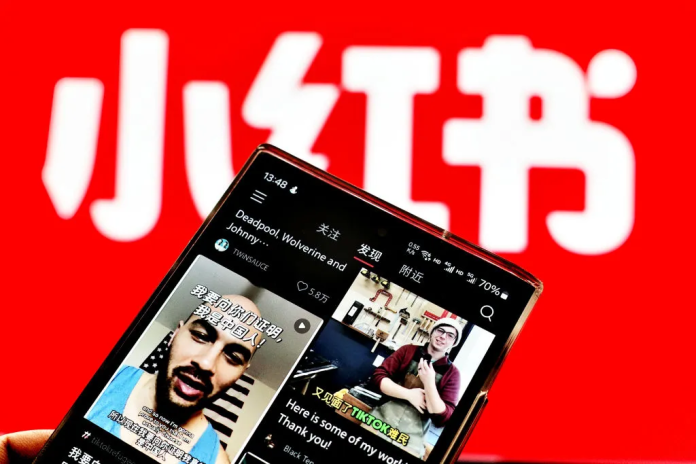Much like the nationalist KMT party fleeing to Taiwan after the civil war, TikTok users are moving “en masse” to the social media app Xiaohongshu, often translated as Red Note, seeking refuge from American social media.
TikTok was briefly banned in the United States on Saturday, January 18th. This was part of a bill passed last year by Congress and signed into law by President Biden, the Protecting Americans from Foreign Adversary Controlled Applications Act, which stipulates that it “prohibits distributing, maintaining, or providing internet hosting services for a foreign adversary controlled application.” TikTok had stated that the screens would go black starting on Sunday, rendering the platform unusable in the United States and cutting off around 170 million users.
In an act of defiance, many users have fled to the app Xiaohongshu or Rednote as an alternative rather than use American-based social media platforms like Facebook, Twitter, or Instagram. Notably, the abandonment of these social media sites coincided with Mark Zuckerberg’s recent announcement that he would end Meta’s fact-checking services, causing public backlash. These users have referred to themselves as TikTok refugees, using the hashtag #TikTokrefugees to identify themselves and make posts on the platform. Xiaohongshu has a user base mainly in China and is under the more direct control of the Chinese government, further adding salt to the wound of congressional leaders trying to “protect national security.” Another act of protest that has been a recent trend on TikTok is a growing number of people “saying goodbye to their Chinese spy” and packing personal information into envelopes to be mailed directly to Xi Jinping, President and Paramount leader of China.
These rebellious moves away from American-owned social media reflect a broader souring attitude toward the US government and US corporations. Many people online express that they simply don’t care about how China uses their data; what could they do worse than companies like Meta already have? Meta has overseen multiple data breaches and faces ongoing lawsuits over illegal data selling. It is fair to say that companies like Meta might not have our best interests in mind.
The US government also has a long history of curtailing personal rights in the name of National Security. The Alien and Sedition Acts, Espionage Acts, suspensions of Haebeus Corpus, The PATRIOT Act, etc. In all instances, American’s rights to speech and expression were restricted in the name of “National Security.” But these are usually dubious claims, giving our government more surveillance ability over its citizens. Such activity was revealed when whistle-blower Edward Snowden leaked information that the National Security Agency had been spying on American phone calls. It is safe to say that claims of protecting national security are met with skepticism.
When users opened the app this morning, they were met with a screen that read: “Sorry, TikTok isn’t available right now,” with options to either “Learn More” or close the app. In a recent development, TikTok might scrape its way back to the US. After then President-Elect Donald Trump announced he would sign an executive order to delay the ban by 75 days, TikTok said they were working on restoring access to the app. Most users had their access restored on Sunday, adding further confusion and uncertainty to the mix. Many users have also expressed worries about potential changes that may come to the app, in line with recent changes to Meta Platforms, to avoid the ban. What TikTok’s ultimate fate will be is yet to be seen. We may have access to it now, but it could soon change.
This latest attempt to ban the platform sets a dangerous precedent around curbing personal rights. TikTok undeniably allows millions of individuals to communicate, express ideas, spread information and news, collaborate, make content, and make a living. NPR reports that around 7 million small businesses are propped up on TikTok. TikTok has become a viable source of income for millions of Americans as content creators in a world that’s becoming increasingly unaffordable. Attempts to ban it come at a great price: a profound loss of connection and jobs with no compensation.
*This is a developing story*
Sources:
https://time.com/7207351/tiktok-refugees-us-red-note
https://time.com/7206781/red-note-tiktok-migration
https://www.bbc.com/news/magazine-34932800
https://www.congress.gov/bill/118th-congress/house-bill/7521
https://apnews.com/article/supreme-court-meta-facebook-lawsuit-9173ad92e11df4b2a565418e419dfb88
https://www.reuters.com/technology/tiktok-goes-dark-us-users-trump-says-save-tiktok-2025-01-19



